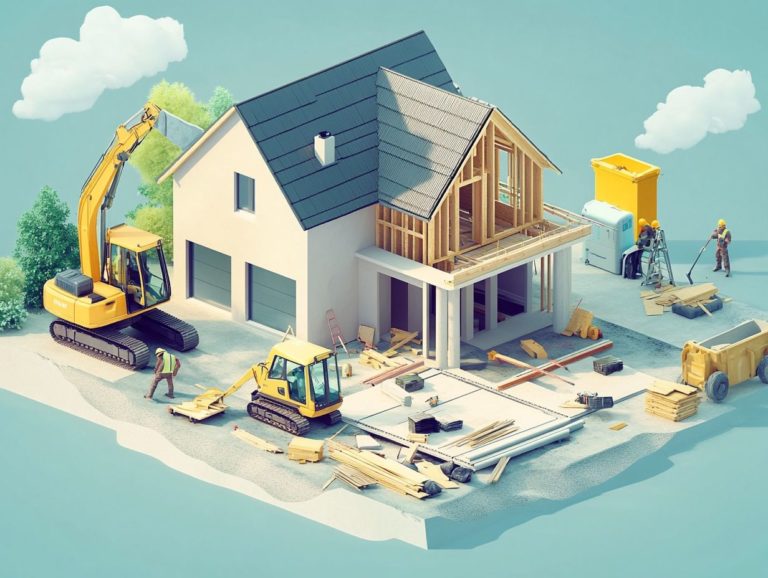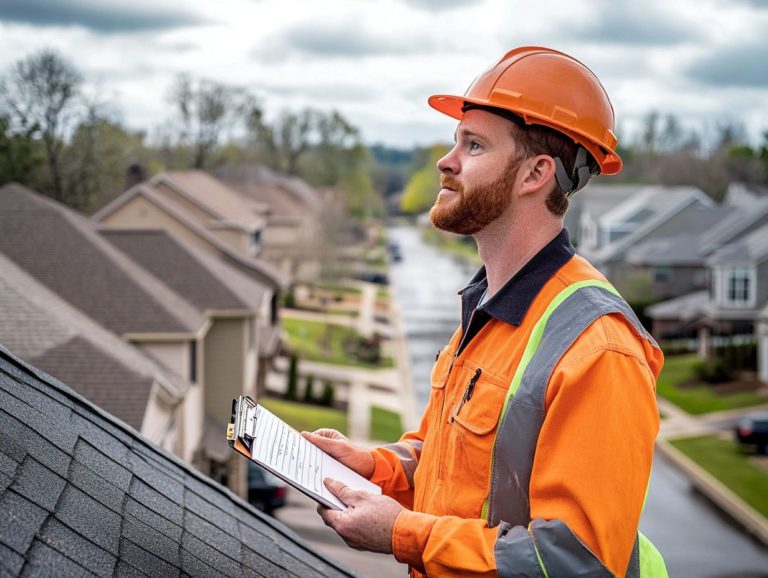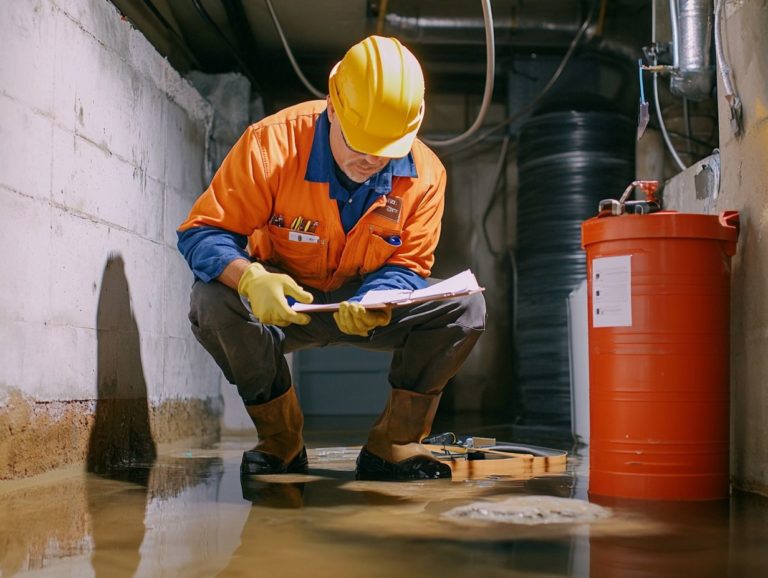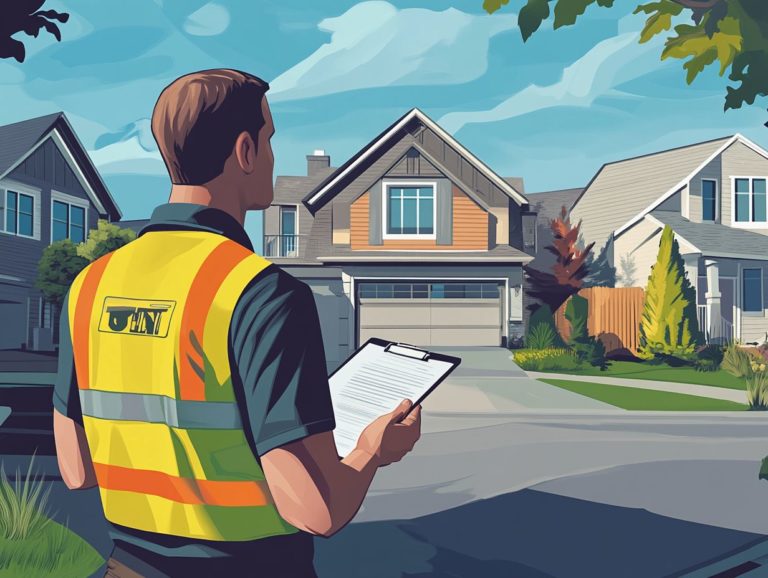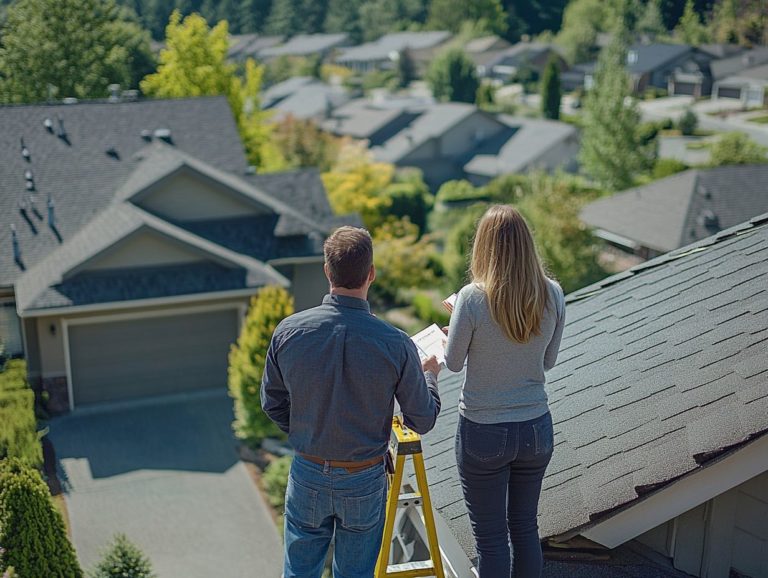5 Tips for a Smooth Home Inspection Experience
Preparing for a home inspection is an important step in your buying or selling journey. It can influence negotiations and future repairs.
This article shares five essential tips to help you navigate the process smoothly. Get ready to find answers to your burning questions about what to expect and key inspection areas.
Whether you’re a homeowner or a potential buyer, these insights will give you confidence and clarity as you approach the inspection.
Contents
- Key Takeaways:
- 1. Prepare Your Home for Inspection
- 2. Be Present During the Inspection
- 3. Ask Questions and Take Notes
- 4. Be Open to Negotiations
- 5. Follow Up with Any Necessary Repairs
- What Is a Home Inspection and Why Is It Important?
- Frequently Asked Questions
- What are the top 5 tips for a smooth home inspection experience?
- Why is it important to prepare your home before a home inspection?
- Should I attend the home inspection?
- What should I do during the home inspection?
- How should I review the inspection report?
- Is it necessary to follow up on recommended repairs?
Key Takeaways:
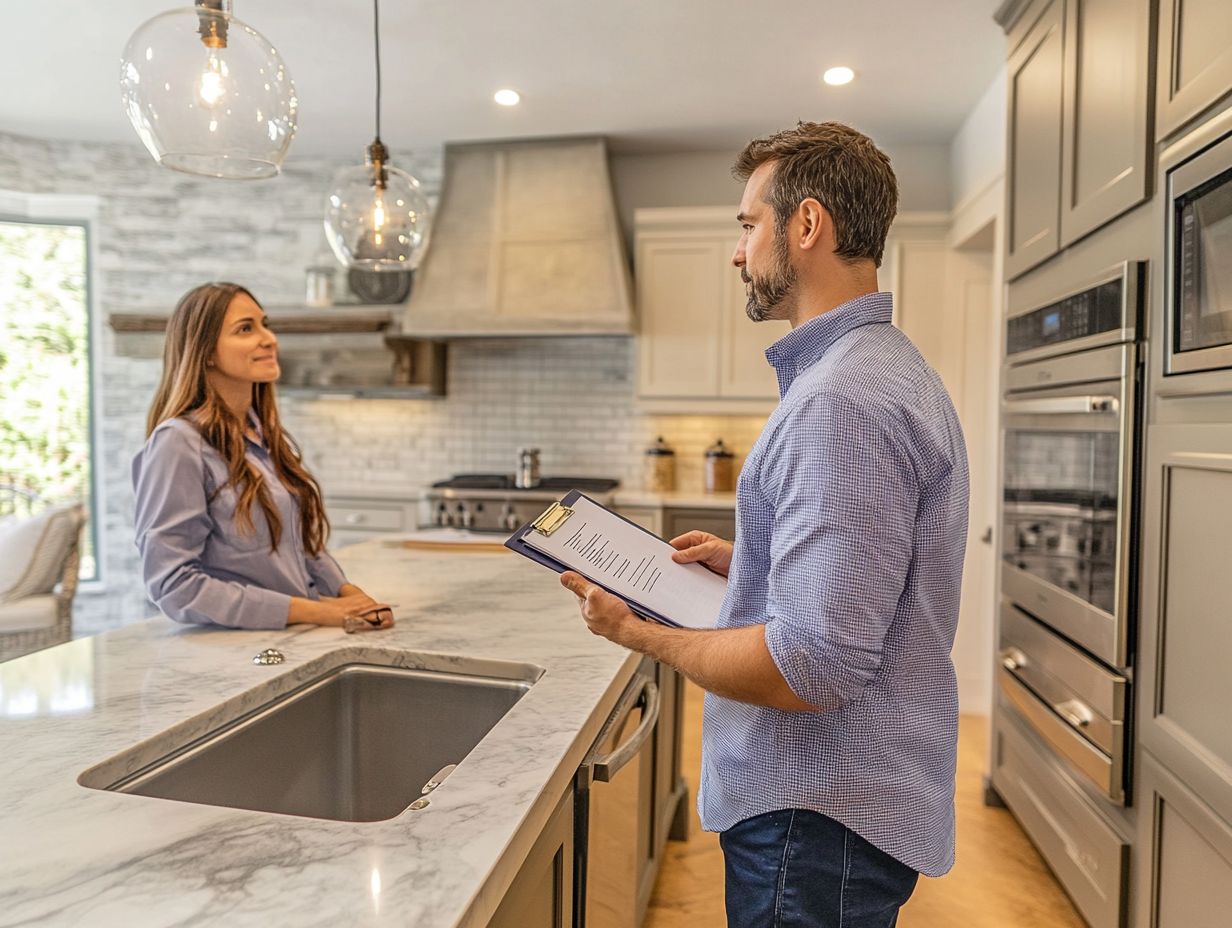
Prepare your home to ensure a smooth process. Be present during the inspection to ask questions, take notes, and address concerns directly with the inspector.
Stay open to negotiations and consider necessary repairs that come up during the inspection.
1. Prepare Your Home for Inspection
Preparing your home for inspection is vital, whether you’re buying or selling. Knowing how to prepare for your home inspection can significantly affect the inspection report and streamline the home buying process.
Make sure your property is well-prepared to tackle potential repair issues and safety hazards. Start by cleaning and decluttering every room.
Pay attention to minor repairs, like leaky faucets and squeaky doors. Ensure access points to crucial areas, such as the attic and mechanical systems, are clear.
Talking openly with experienced inspectors can clarify your expectations. This collaboration is vital for understanding how to prepare for a home inspection, ensuring a smooth inspection process for everyone involved.
2. Be Present During the Inspection
Being present during the inspection is crucial for you as a buyer. It’s your chance to connect directly with the inspector and gain insights into potential hazards.
This participation allows you to ask questions about critical systems like electrical and plumbing. You’ll also learn how HVAC systems function.
Witnessing the inspection firsthand gives you valuable knowledge about maintenance. It helps you understand the property’s condition, boosting your peace of mind.
3. Ask Questions and Take Notes
Asking questions and taking notes is essential during the inspection. This practice helps you clarify concerns and understand the implications of any issues found.
Prepare a list of targeted questions in advance. This ensures you address all your concerns effectively and grasp the potential maintenance needs.
4. Be Open to Negotiations
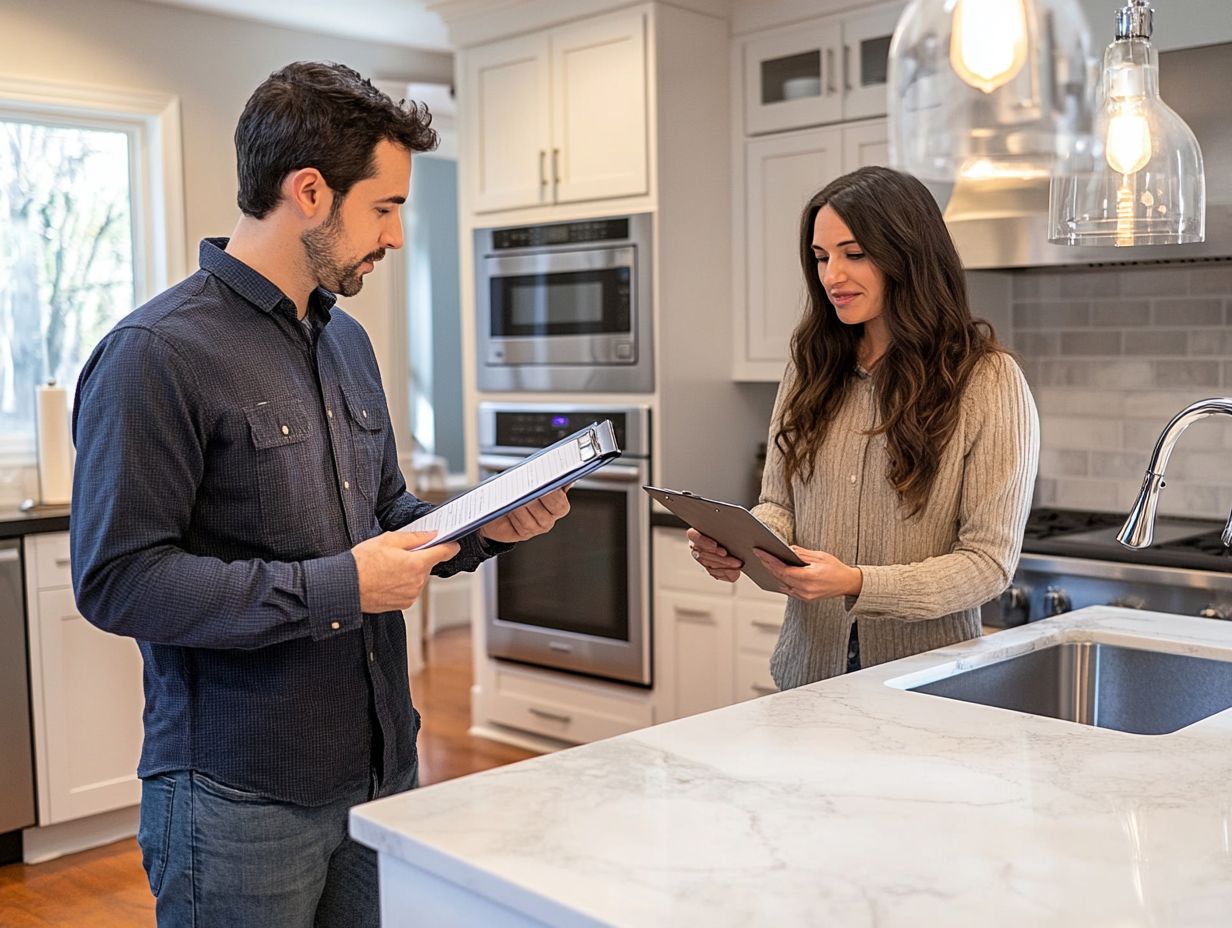
Being open to negotiations after the home inspection is important for you as a home buyer. This flexibility can lead to a better purchasing agreement, especially if the inspection report uncovers major repair issues or discrepancies in the seller s disclosure.
Recognizing the value of a collaborative approach during these discussions can improve your results. For example, when addressing costly repairs, present the inspection findings clearly, highlighting specific areas that need attention. This strategy conveys the facts without placing blame on the seller.
Using phrases like, “After reviewing the report, I was surprised to find these issues, and I hope we can discuss possible adjustments to the price,” sets a cooperative tone from the beginning.
Proposing solutions, such as requesting that repairs be completed before closing or negotiating a credit for future renovations, can foster positive dialogue, ensuring that both you and the seller feel valued throughout the negotiation process.
5. Follow Up with Any Necessary Repairs
Following up on necessary repairs highlighted in your home inspection report is crucial for ensuring the long-term safety and maintenance of your new property. Addressing safety hazards enhances your home’s integrity and offers peace of mind.
By establishing a prioritization system, you can tackle the most pressing issues first, like electrical or plumbing concerns, while planning for less urgent repairs over time.
It s vital to hire qualified professionals who ensure that all work meets local building codes. Implementing a routine maintenance schedule such as seasonal inspections, gutter cleaning, and leak checks will help prevent minor issues from becoming significant repairs.
This proactive approach ultimately preserves the value and comfort of your property.
What Is a Home Inspection and Why Is It Important?
A home inspection is an important step in your home-buying journey, providing a detailed evaluation of a property’s structural integrity, electrical systems, plumbing, and safety hazards. This process gives you vital insights that can make or break your investment!
Conducted by a qualified home inspector, this assessment carefully checks various aspects of the home, including the roof, foundation, and HVAC systems (heating, ventilation, and air conditioning), ensuring that potential issues are uncovered before you finalize the deal.
By identifying deficiencies or urgent repairs, this comprehensive inspection shields you from unexpected financial burdens later. It acts as a powerful negotiation tool, allowing you to request necessary repairs or concessions based on the findings, ensuring your investment is sound and secure.
What Are the Key Areas That Are Inspected?
During a home inspection, pay close attention to several key areas, including electrical systems, plumbing, HVAC systems, roof, foundation, and potential safety hazards. This overview will give you a clear picture of the property’s condition.
Inspectors carefully check the electrical systems to uncover potential fire hazards. They examine wiring, outlets, and circuit breakers to ensure compliance with safety standards.
Next, they focus on the plumbing system, checking for leaks, assessing water pressure, and confirming proper drainage factors that significantly impact your comfort and the home’s structural integrity.
The HVAC system is scrutinized for efficiency and functionality, vital for maintaining good indoor air quality and managing energy costs. Inspectors will also check the roof and foundation for signs of wear, damage, or pest infestations that could lead to costly repairs.
Safety hazards like inadequate railings or missing carbon monoxide detectors are also checked to ensure the well-being of everyone living in the home.
Take charge of your home buying journey today!
How Long Does a Home Inspection Usually Take?
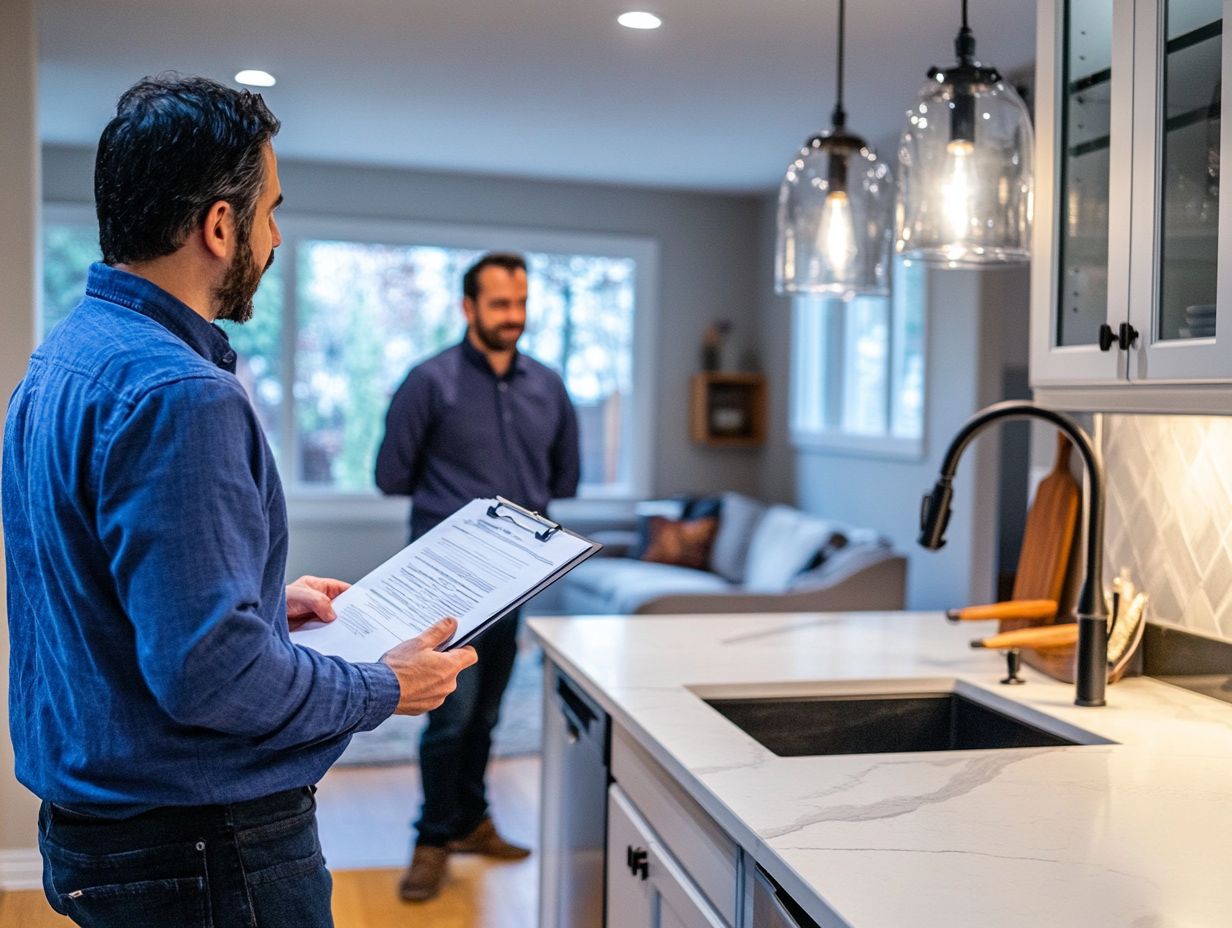
Wondering how long a home inspection takes? A typical one usually lasts between two to four hours. This timeframe varies based on the property’s size, age, and the details involved in the inspection.
The time for an inspection varies. It depends on factors like the number of systems being checked, such as plumbing and electrical, which can extend the inspection time.
If there are specific worries you or the seller have, that can also lengthen the inspection. Unique features, like a pool or extensive landscaping, might require extra time. Preparing a list of concerns beforehand can help streamline the process and ensure the inspector addresses all relevant issues efficiently.
What Are Some Common Issues Found During a Home Inspection?
Common issues discovered during a home inspection can range from minor repairs, like worn-out fixtures, to serious safety hazards, such as electrical system failures or plumbing leaks, which may pose real risks to you as a homebuyer.
These problems can lead to costly repairs or safety worries that might make potential buyers hesitate. For instance, roofing issues could necessitate extensive repairs, while pest infestations might indicate deeper structural problems.
As a savvy homebuyer, consider negotiating with sellers regarding these findings. You could ask them to make repairs before closing or seek a reduction in the purchase price to accommodate the needed work.
Securing a repair estimate can bolster your discussions with the sellers, ensuring you feel confident and secure in your investment.
What Should Homeowners Do If They Disagree with the Inspection Report?
If you disagree with the inspection report, it s essential to discuss your concerns with the home inspector. Don t hesitate to seek a second opinion if needed. Address any issues through the appropriate channels for the best outcome.
Gathering additional documentation that supports your perspective can strengthen your position. Understanding the inspector’s claims is also crucial for more effective communication.
Engaging in a constructive dialogue with the seller is key. Clearly express your concerns while remaining open to collaboration. This approach clarifies misunderstandings and nurtures a cooperative environment as you work together to resolve disputes from the inspection findings.
How Can Homeowners Prepare for a Home Inspection?
You can prepare for a home inspection by tackling minor repairs, ensuring easy access to critical areas like the attic and basement, and reviewing a checklist to make the most of your home inspection to make the process as seamless as possible.
By systematically going through this checklist, you not only highlight the strengths of your property but also minimize potential red flags that could deter buyers.
Key tasks to focus on include:
- Checking for leaky faucets
- Ensuring all light fixtures are operational
- Making sure the HVAC (Heating, Ventilation, and Air Conditioning) system is free from clutter
Don t forget to review the exterior; clean the gutters and ensure the roof is in good condition. A tidy garden and clear walkways will certainly enhance first impressions.
These proactive steps can significantly boost your home’s overall appeal, setting the stage for a smooth inspection experience.
Frequently Asked Questions

What are the top 5 tips for a smooth home inspection experience?
The top 5 tips for a smooth home inspection experience are:
- Prepare your home by decluttering and making necessary repairs.
- Attend the inspection.
- Ask questions and take notes.
- Review the inspection report thoroughly.
- Follow up on any recommended repairs.
Ready to ace your home inspection? Start preparing today!
Why is it important to prepare your home before a home inspection?
Preparing your home can make the inspection smoother. By following steps on how to prepare your home for a successful inspection, you can remove unnecessary items and fix repairs to help the inspector access and evaluate your home easily.
Should I attend the home inspection?
You should attend the home inspection. This lets you ask questions and understand the inspector’s findings better. You might spot potential issues too.
What should I do during the home inspection?
Be present and attentive during the inspection. To ensure you are well-prepared, check out how to stay calm during a home inspection. Ask questions, take notes, and snap photos of any concerns or suggested repairs.
How should I review the inspection report?
Carefully go through each section of the inspection report. Note any repairs or concerns and reach out to the inspector if you have questions.
Is it necessary to follow up on recommended repairs?
Yes! Follow up on recommended repairs to keep your home safe and functional. Address major issues right away and prioritize minor repairs to prevent bigger problems later.

